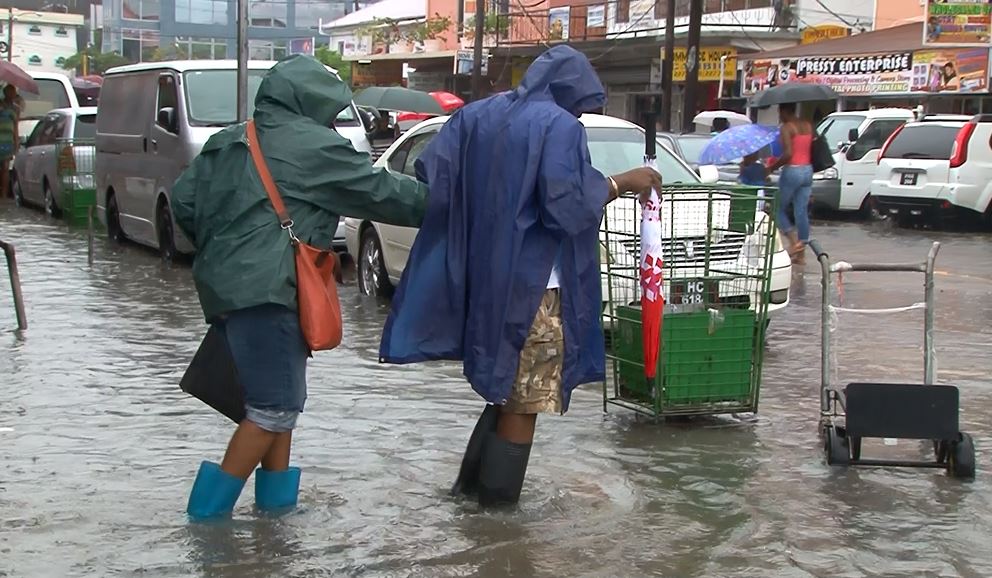Almost four months after the Dutch Risk Reduction team would have handed over their final report and recommendations on an effective and efficient drainage system for the Capital, the Government will coordinate an inter-agency task force to focus efforts on the same issue.
This was revealed today (Friday, January 6, 2017) by Minister of State, Joseph Harmon, who briefed members of the media on the deliberations of the Cabinet at this week’s sitting.
According to Minister Harmon, Minister of Communities, Ronald Bulkan was assigned the task of coordinating this body which will include the Ministries of Agriculture and Public Infrastructure, the Mayor and City Council (M&CC) and the National Drainage and Irrigation Authority (NDIA) who will formulate a long-term strategy for the Capital.
The Dutch Risk Reduction (DRR) Team also worked hand in hand with these agencies in addition to the University of Guyana, the Civil Defence Commission (CDC) and the National Task Force to formulate the plan which included a drainage and irrigation model.
News Room today asked Minister Harmon about this report on Project Georgetown, who confirmed that the report was received and that it pointed out some very serious options.
“As you know the entire drainage system here in Guyana was built by the Dutch and so when they came what they discovered was that a number of the canals were filled in and we made roads where those canals were and very many cases where we had outfalls to be drained we had actually built car parks and all these kinds of things over them” Harmon said
As a consequence, he notes that there will have to be some “radical” change in the way things are done in relation to drainage while he adds that the overall strategy will also have to take into account these matters.
According to Harmon “we cannot complain that every time the rains falls that we are flooded and we are seeing that the reason for the flooding, for the water not going off very quickly, right before our very eyes. We have to be strong about this matter and take some very hard decisions about it.”
The seven-member Dutch Risk Reduction Team of Masters Students from Delft University in the Netherlands arrived in early July to begin their assessment and presented their findings and recommendations at the end of September. They conducted visits to several locations across the city before making their recommendations.
Seven recommendations were to upgrade modelling capability; increase flood resilience of people and businesses; upgrade dredging capabilities and improve flow efficiency; develop long-term plans; develop and test a pilot project; develop and apply a life cycle approach for the drainage assets; and data management through digitisation.








